

 |
 |
|
Speakers Akeel Bilgrami, Columbia University Alan Brinkley, Columbia University G. A. Cohen, All Souls College, Oxford University Jon Elster, Columbia University James D. Fearon, Stanford University John Ferejohn, Stanford University George P. Fletcher, Columbia University Diego Gambetta, Columbia University Stephen Holmes, New York University Bernard Manin, New York University Mayor Antanas Mockus Sivickas, Bogota, Colombia Adam Przeworski, New York University Michel Rocard, France Debra M. Satz, Standford University Joseph E. Stiglitz, Columbia University Jeremy Waldron, Columbia University  Akeel Bilgrami, Columbia University Biography Akeel Bilgrami received his first degree in English Literature at Bombay University and then went to Oxford University as a Rhodes Scholar, where he got a B.A in philosophy, politics, and economics. He has a Ph.D. from the University of Chicago, where he wrote a dissertation on the indeterminacy of translation. He taught at the University of Michigan for two years before he defected to Columbia University, where he has been since the mid-eighties. He has written a book called Belief and Meaning: The Unity and Locality of Mental Content, which is on issues of linguistic meaning and its relation to thought and reality. Bilgrami has also published various articles on related themes having to do with, generally, intentionality, first-person authority, scepticism, and realism. Apart from the philosophy of language and mind, he also has research interests in moral psychology and political theory.Bilgrami has two more books coming out from Harvard University Press next year:
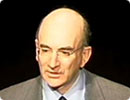 Alan Brinkley, Columbia University Biography Alan Brinkley is the Allan Nevins Professor of History at Columbia University in New York, where he has taught since 1991. He is currently the provost of the University. His published works include Voices of Protest: Huey Long, Father Coughlin, and the Great Depression (Knopf, 1982), which won the 1983 National Book Award; The Unfinished Nation: A Concise History of the American People (Knopf, 1992); The End of Reform: New Deal Liberalism in Recession and War (Knopf, 1995); and Liberalism and Its Discontents (Harvard, 1998). He is presently writing a biography of Henry R. Luce, to be published by Knopf. View Full Speaker List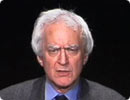 G. A. Cohen, All Souls College, Oxford University Biography G. A. Cohen was educated at McGill and Oxford Universities, where he obtained, respectively, the degrees of B.A. in philosophy and politics and B.Phil. in philosophy in 1963. For 22 years he was a lecturer and then a reader in philosophy at University College, London. In 1985 he became Chichele Professor of Social and Political Theory and a fellow of All Souls, Oxford. Professor Cohen is the author of Karl Marx's Theory of History: A Defense (1978; expanded edition, 2000), History, Labour, and Freedom (1988), Self-Ownership, Freedom, and Equality (1995), and If You're an Egalitarian, How Come You're So Rich? (2000). Cohen has given lectures all over the world, including the Tanner Lectures at Stanford University in 1991 and the Gifford Lectures at Edinburgh University in 1996. He was made a fellow of the British Academy in 1985. View Full Speaker List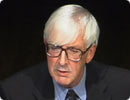 Jon Elster, Columbia University Biography Before coming to Columbia University, Jon Elster taught in Paris, Oslo, and Chicago. His publications include Ulysses and the Sirens (1979), Sour Grapes: Studies in the Subversion of Rationality (1983), Making Sense of Marx (1985), The Cement of Society (1989), Solomonic Judgements: Studies in the Limitation of Rationality (1989), Nuts and Bolts for the Social Sciences (1989), Local Justice: How Institutions Allocate Scarce Goods and Necessary Burdens (1992), and Political Psychology (1993).
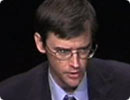 James D. Fearon, Stanford University Biography James D. Fearon is professor of political science at Stanford University. His research has focused on democracy and international disputes, explanations for interstate wars, and, most recently, the causes of civil and especially ethnic violence. He is presently working on a book manuscript (with David Laitin) on civil war since 1945. Representative publications include "Ethnicity, Insurgency, and Civil War," (American Political Science Review, February 2003), "Rationalist Explanations for War" (International Organization, Summer 1995), and "Domestic Political Audiences and the Escalation of International Disputes" (American Political Science Review, September 1994). Fearon won the 1999 Karl Deutsch Award, which is "presented annually to a scholar under the age of forty who is judged to have made, through a body publications, the most significant contribution to the study of International Relations and Peace Research." He was elected as a fellow of the American Academy of the Arts and Sciences in 2002. View Full Speaker List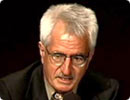 John Ferejohn, Stanford University Biography John Ferejohn is a professor of political science at Stanford University, a senior fellow of the Hoover Institution, and a regular visiting professor at NYU Law School. He has previously taught at the California Institute of Technology and is an adjunct professor at the Research School for the Social Sciences at the Australian National University in Canberra. He has written on varied empirical and theoretical topics concerning political institutions and behavior, including social choice theory, electoral processes, and theories of legislatures and of legislation. Currently his interests have been in jurisprudence and political theory and in understanding rational choice explanations of social phenomena. Among his publications are Pork Barrel Politics; Rivers and Harbors Legislation, 1947-1968 (1974), Personal Vote: Constituency Service and Electoral Independence (1987), Constitutional Culture and Democractic Rule (2001), and numerous articles in journals and collections. View Full Speaker List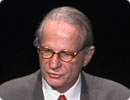 George P. Fletcher, Columbia University Biography George P. Fletcher writes and speaks in the fields of criminal law, constitutional law, and international affairs. His latest book, Romantics at War: Glory and Guilt in the Age of Terrorism, was published in mid-November 2002. Michael Walzer describes the book "as a deep and engaging meditation . . . [for a lawyer] a wonderfully unlawyerly account, a philosophical investigation, of individual agency, responsibility, and guilt."
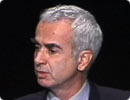 Diego Gambetta, All Souls College, Oxford University Biography Diego Gambetta is professor of sociology at the University of Oxford and an official fellow of Nuffield College. Born in Turin, Italy in 1952, he received his Ph.D. in social and political sciences from the University of Cambridge, U.K., in 1983. From 1984 to 1991 he was research fellow at King's college, Cambridge. From 1995 until October 2002 he was reader in sociology at the University of Oxford and Fellow of All Souls College. In 2000 he was made a Fellow of the British Academy. His main interests are signalling theory and its applications; trust and mimicry; and organised crime. He is married to Valeria (1992), and has one son, Leo born in 1996, and one daughter, Sofia, born in 2000.
 Stephen Holmes, New York University Biography Stephen Holmes is currently professor of law at NYU School of Law. From 1979-85 he taught at the department of government at Harvard University. From 1985-97, he was professor of politics and law at the law school and political science department of the University of Chicago. From 1997-2000 he was professor of politics at Princeton.
 Bernard Manin, New York University Biography Bernard Manin is a professor of political science at New York University and Institut d'Études Politiques de Paris. He taught previously at the University of Chicago. He is the author of The Principles of Representative Government (1997). He coauthored, with Alain Bergounioux, La Social-Démocratie ou le Compromis (1979) and Le Régime Social-Démocrate (1989). He has also written on democracy and political deliberation, and on the history of eighteenth-century political thought (Montesquieu in particular). He is currently writing a book on the French Revolution and emergency powers. View Full Speaker List Mayor Antanas Mockus Sivickas, Bogota, Colombia Biography Antanas Mockus was born in Bogota, Colombia, on March 25, 1952. In 1972 he obtained a B.A. in Mathematics at the Université de Dijon, France, and in 1988 an M.A. in philosophy at the Universidad Nacional de Colombia.
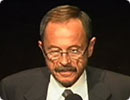 Adam Przeworski, New York University Biography Adam Przeworski was born in Warsaw, Poland. He holds an M.A. in philosophy from Warsaw University and a Ph.D. in political science from Northwestern University. Currently he is the Carroll and Milton Petrie Professor of Politics at New York University. Formerly he was the Martin A. Ryerson Distinguished Service Professor at the University of Chicago. He has taught and researched at scholarly institutions in Chile, France, Germany, India, Poland, Switzerland, and Spain. Fellow of the American Academy of Arts and Sciences since 1986, he won the 2001 Wilson Prize and the 1998 Luebbert Prize.
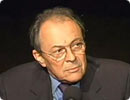 Michel Rocard, France Biography Michel Rocard was born in 1930 in Courbevoie, France. He studied at the Institut d'Études Politiques de Paris and was named inspector of finance in 1958 after finishing his training at the École National d'Administration. He became a leader of the Unified Socialist Party, serving as its national secretary from 1967-73, and has been a member of the Socialist Party executive bureau since 1975. Rocard served as minister of planning and regional development from 1981-83 and then as minister of agriculture from 1983-85. He was the prime minister of France from 1988-91 and then headed the Socialist Party from 1993-94. He was also the mayor of Conflans-Saint-Honorine between 1977-94 and senator for Yvelines from 1995-97. Rocard has been a member of the European Parliament since 1994, where he served on the Committee on Employment and Social Affairs from 1997-99. In January 2002, he became the president of the Committee on Culture, Youth, Education, the Media, and Sport. View Full Speaker List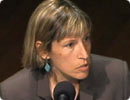 Debra M. Satz, Stanford University Biography Debra Satz is an associate professor of philosophy and, by courtesy, of political science at Stanford University. She is also director of the interdisciplinary program in Ethics in Society. She teaches courses in ethics, social and political philosophy, and philosophy of the social sciences. Within these fields, her research has focused on the ethical limits of markets, theories of rational choice, democratic theory, feminist philosophy, and issues of international justice. Her articles have appeared in Ethics, Philosophy and Public Affairs, the Journal of Philosophy, and the World Bank Economic Review. View Full Speaker List Joseph E. Stiglitz, Columbia University Biography Joseph E. Stiglitz was born in Gary, Indiana, in 1943. A graduate of Amherst College, he received his Ph.D. from the Massachusetts Institute of Technology in 1967, became a full professor at Yale in 1970, and in 1979 was awarded the John Bates Clark Award, given biennially by the American Economic Association to the economist under forty who has made the most significant contribution to the field. He has taught at Princeton, Stanford, MIT, and was the Drummond Professor and a fellow of All Souls College, Oxford. He is now a professor of economics and finance at Columbia University in New York. In 2001, he was awarded the Nobel Prize in economics.
 Jeremy Waldron, Columbia University Biography Jeremy Waldron is the Maurice and Hilda Friedman Professor of Law at Columbia Law School and is the director of Columbia's Center for Law and Philosophy.
|
|